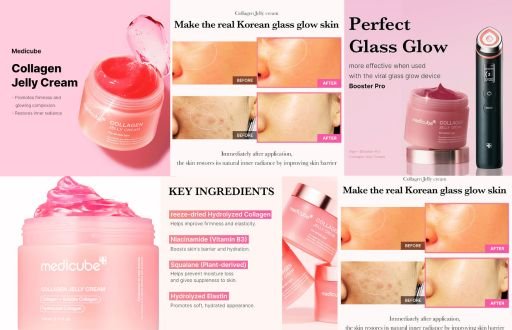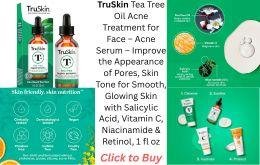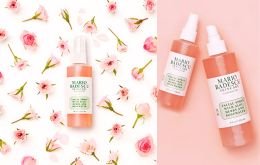We all dream of having clear, radiant skin, right? But effective skincare goes beyond just looking good; it’s about keeping your skin healthy for the long haul. After all, your skin is the largest organ in your body, and it deserves just as much care as the rest of you.
Let’s dive into the world of skincare! We’ll look at daily routines, must-have products, and tips tailored for every skin type. Taking care of your skin doesn’t have to be a hassle. With a few simple steps, you can see some pretty amazing results.
Why Skincare Is Important
Your skin is hard at work every single day. It shields you from germs, fights off sun damage, and helps keep your body temperature in check. If you don’t give it the care it needs, it can become dry, irritated, or prone to breakouts.
Good skincare offers a ton of benefits:
- It slows down the signs of aging
- It helps prevent various skin issues
- It boosts your confidence
- It aids in faster healing for your skin
Taking care of your skin today means fewer problems tomorrow. Think of skincare as a gift to your future self!
Know Your Skin Type
Before you start buying products, it’s crucial to know your skin type. This understanding will help you choose the right products for your needs.

- Dry skin often feels tight and may look flaky, so it needs extra moisture.
- Oily skin tends to shine and might have larger pores, requiring lightweight, non-greasy products.
- Combination skin is a mix, being dry in some areas and oily in others, especially in the T-zone (forehead, nose, chin).
- Normal skin is just right—not too dry and not too oily.
- Sensitive skin can react easily, showing redness or irritation, so it needs gentle, fragrance-free products.

Not sure what your skin type is? Here’s a quick test: wash your face, wait an hour, and then see how it feels. Is it tight? That’s dry. Shiny? That’s oily. A bit of both? You’ve got combination skin.
Acne and How to Prevent It
Almost everyone deals with acne at some point in their lives. Those annoying little bumps show up when your pores get clogged with oil and dead skin cells. But here’s the silver lining: you can definitely fight back!
What Causes Acne?
There are several culprits behind those breakouts:
- Too much oil production
- Bacteria hanging out on your skin
- Hormonal shifts
- Choices in your diet
- Levels of stress
- Using the wrong skincare products
Winning Strategies Against Acne
- Wash your face gently twice a day. Scrubbing too hard can make acne worse. Opt for a mild cleanser that contains salicylic acid or benzoyl peroxide.
- Keep your hands off your face. Your fingers can carry oils and bacteria that lead to more breakouts.
- Look for “non-comedogenic” products. This means they won’t clog your pores.
- Pay attention to your diet. Some people notice breakouts after consuming dairy, sugar, or high-glycemic foods. Keeping a food diary can help you identify your triggers.
- Change your pillowcases regularly. Oil and bacteria can build up on fabric and transfer to your skin.
- Manage your stress levels. Try yoga, deep breathing, or whatever helps you unwind. Less stress often leads to clearer skin.
- Be patient with your treatments. Most acne products take about 6-8 weeks to show real results, so don’t lose hope too soon!
- Consult a doctor for severe acne. Sometimes, you might need prescription-strength treatments. Don’t hesitate to seek help if your acne is painful or leaving scars.
Spot Treatments
That Work For those unexpected pimples, consider trying:
- Diluted tea tree oil
- Benzoyl peroxide gel
- Hydrocolloid patches that draw out fluid
- Ice to help reduce swelling
And remember: never pop your pimples! This can push bacteria deeper into your skin and lead to scarring.
Building Your Skincare Routine
Creating an effective skincare routine doesn’t have to be rocket science. Even a few simple steps can lead to noticeable improvements. Here’s a straightforward plan anyone can follow.
Morning Routine
- Cleanse – Start your day with a gentle face wash to wipe away the oils that built up overnight.
- Tone (optional) – If you like, use a toner to help balance your skin’s pH and get rid of any leftover dirt.
- Apply serum – Serums are packed with powerful ingredients that target specific issues like dark spots or fine lines.
- Moisturize – No matter your skin type, moisture is key—even for oily skin. Pick a moisturizer that fits your needs.
- Sunscreen – Don’t skip this step! Protecting your skin from sun damage is crucial to prevent wrinkles and reduce the risk of skin cancer. Aim for SPF 30 or higher.
Evening Routine
- Remove makeup – Always take off your makeup before bed. It can clog your pores and lead to breakouts.
- Cleanse – Wash away the dirt, oil, and pollution that have built up during the day.
- Exfoliate (1-2 times weekly) – This helps get rid of dead skin cells. Just don’t overdo it, as daily exfoliation can harm your skin.
- Apply treatments – Nighttime is perfect for using stronger products like retinol or acne treatments.
- Moisturize – Night creams are usually richer, helping your skin repair itself while you sleep.
Must-Have Skincare Products
With so many options out there, it can be tough to know what you really need. Here are the essentials:
- Cleanser: Pick one that cleans well without drying out your skin. Foaming cleansers work great for oily skin, while cream cleansers are better for dry skin.
- Moisturizer: This is a must for all skin types. It keeps your skin hydrated and protected.
- Sunscreen: The best anti-aging product? Sunscreen! It stops sun damage before it starts.
- Exfoliator: This helps remove dead skin cells for a brighter look. Just be careful not to use it too often.
- Serum: These target specific concerns with powerful ingredients like vitamin C or hyaluronic acid.
Skincare Tips for Different Ages
Your skin changes as you age, so your routine should change too.
- In your 20s: Focus on prevention. Make sunscreen a daily habit and keep your routine simple.
- If you’re in your 30s: it’s time to start incorporating anti-aging products into your routine. Look for options that include retinol and vitamin C to help keep your skin youthful.
- Once you hit your 40s and beyond: hydration becomes even more crucial. Opt for richer creams and focus on repairing your skin.
Natural Skincare Options
You don’t always need to rely on store-bought products for skincare. Many items from your kitchen can work wonders:
- Honey is fantastic as a face mask; it fights bacteria and adds moisture.
- Oatmeal is great for calming red, itchy skin. Just mix it with water for a soothing mask.
- Aloe vera is perfect for healing and calming your skin, especially after sun exposure.
- Green tea can help reduce inflammation when applied topically. Just let it cool down, and you’ve got a lovely toner.
Common Skincare Mistakes
Even with the best intentions, many people inadvertently harm their skin. Here are a few common pitfalls:
- Using too many products can irritate your skin. Keep it simple.
- Skipping sunscreen can lead to premature aging and increase your risk of skin cancer.
- Over-exfoliating can damage your skin barrier. Stick to once or twice a week.
- Popping pimples can cause scarring and spread bacteria. Let them heal on their own.
- Washing with hot water strips your skin of natural oils. Opt for lukewarm water instead.
Skincare Beyond Products
Remember, great skin isn’t just about the products you use; your lifestyle plays a big role too:
- Stay hydrated by drinking plenty of water to keep your skin moisturized from within.
- Eat fruits and vegetables rich in antioxidants to help fight skin damage.
- Make sure you’re getting enough sleep so your skin has time to repair itself.
- Manage stress, as it can trigger breakouts and other skin issues.
- Regular exercise boosts blood circulation, which is great for your skin.
Seasonal Skincare Changes
As the seasons change, so do your skin’s needs. In winter, you’ll need extra moisture, while lighter products work better in summer. Pay attention to what your skin is telling you.
During the dry winter months, consider using a humidifier at night. It adds moisture to the air, which can be beneficial for your skin.
When to See a Dermatologist
Some skin issues really need a professional’s touch. You should reach out to a dermatologist if:
- Your acne is severe and just won’t budge
- You spot any changes in moles or skin marks
- Your skin feels extremely dry or irritated
- You’re dealing with persistent redness or rashes
- Over-the-counter products just aren’t cutting it
Conclusion
Taking care of your skin doesn’t have to be a complicated or pricey affair. The key is to stick with a routine that works for your skin type. Start with the basics: cleanse, moisturize, and protect yourself from the sun.
Remember, good results take time. New skincare products usually need about 4-6 weeks to show their effects, so hang in there and keep up with your routine.
Your skin is as unique as you are. What works wonders for someone else might not be the best fit for you. Pay attention to how your skin responds to different products and adjust as needed.
Looking after your skin is a form of self-care. It’s a simple daily practice that can boost both your skin’s health and your mood. Trust me, your future self will thank you for the care you give your skin today!
Frequently Asked Questions
How often should I wash my face?
Most people should aim to cleanse their skin twice a day—once in the morning and once at night. If you have really dry skin, you might just need to splash some water on your face in the morning.
Do I really need to wear sunscreen on cloudy days?
Absolutely! Those sneaky UV rays can still get through the clouds. So, make it a habit to apply sunscreen every day, even when the sun isn’t shining.
What’s the right order for my skincare routine?
You’ll want to layer your products from the thinnest to the thickest: start with cleanser, then toner, followed by serum, moisturizer, and finish off with sunscreen.
How can I get rid of dark circles under my eyes?
Look for eye creams that have ingredients like vitamin K, caffeine, or retinol. And don’t forget to get enough sleep and drink plenty of water!
Is it normal for new products to irritate my skin at first?
Sometimes, yes. This “purging” phase can happen with products like retinol or acids. But if you notice redness, burning, or itching, it’s best to stop using the product.
Can I use the same skincare products all year round?
You might need to switch to lighter products in the summer and richer ones in the winter, as your skin’s needs can change with the seasons.
How much skincare product should I use?
For most products, a pea-sized amount is usually enough for your whole face. Using more won’t necessarily give you better results.
Are pricey skincare products always better?
Not at all! Just because something is expensive doesn’t mean it’s better. There are plenty of budget-friendly products that work just as well as the high-end ones.













